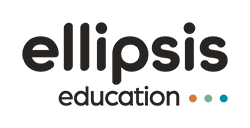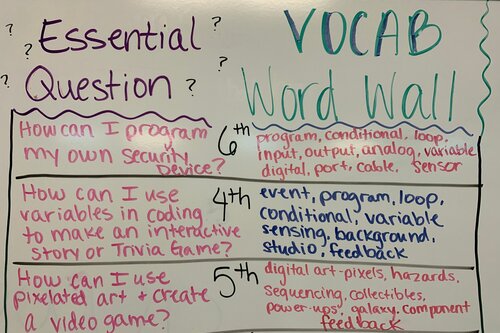
“Press create and go!” Ms. Rebecca Bersani calls out.

Her fourth grade students, seated in table teams, have just been issued a challenge. They must figure out how to use the Scratch* code blocks displayed on the projector to prompt a character to speak. The first three teams to do so? Win a piece of candy.
Students are scrambling, pointing at iPad screens, working together to solve the problem. Eventually, teams are victorious, candy is distributed, and the class continues to the next challenge.
“I think a lot of people think computer science is only coding, but it’s so much more than that,” Ms. Bersani says. “It’s a lot of failure and successes. That’s what makes it so special.”
“I think a lot of people think computer
science is only coding, but it’s so much
more than that.”
— Ms. Rebecca Bersani, STEAM Teacher, Blue Academy
For nine weeks, Ms. Bersani used Codelicious curriculum in her STEAM classroom at Blue Academy in Indianapolis, Indiana. In Programming 101: Introduction to Computational Thinking to Scratch, she taught her students foundational computer science knowledge. After completion of the course, students gained the basic skills needed to take higher level coding classes.


We were excited to visit Ms. Bersani’s classroom and hear more about her experience with Codelicious curriculum. Hear what she had to say in the video below:
And, as a bonus, hear what Principal Gearlds and Ms. Bersani’s students had to say about their experiences with computer science curriculum!
Interested in learning more about Codelicious computer science curriculum? Schedule a demo below. You will explore our courses with one of our curriculum experts and preview features such as syllabi, lesson plans, and standards mapping.
* Scratch is a project of the Scratch Foundation, in collaboration with the Lifelong Kindergarten Group at the MIT Media Lab. It is available for free at https://scratch.mit.edu.